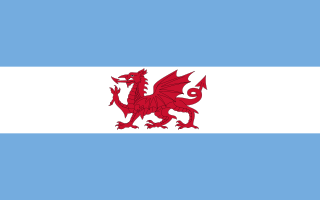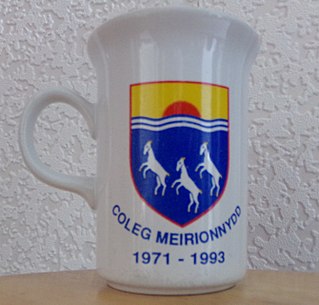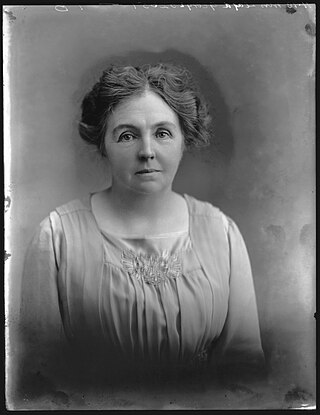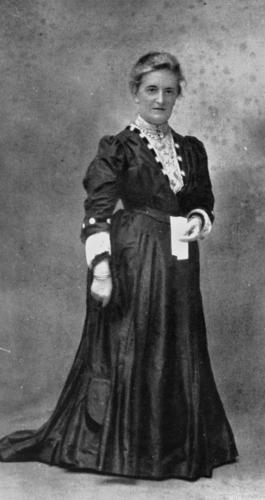
Y Wladfa, also occasionally Y Wladychfa Gymreig, refers to the establishment of settlements by Welsh colonists and immigrants in the Argentine Patagonia, beginning in 1865, mainly along the coast of the lower Chubut Valley. In 1881, the area became part of the Chubut National Territory of Argentina which, in 1955, became Chubut Province.

Dolgellau is a town and community in Gwynedd, north-west Wales, lying on the River Wnion, a tributary of the River Mawddach. It was the traditional county town of the historic county of Merionethshire until the county of Gwynedd was created in 1974. Dolgellau is the main base for climbers of Cadair Idris and Mynydd Moel which are visible from the town. Dolgellau is the second largest settlement in southern Gwynedd after Tywyn and includes the community of Penmaenpool.

George Joseph Smith was an English serial killer and bigamist who was convicted and subsequently hanged for the murders of three women in 1915. The case became known as the Brides in the Bath Murders. As well as being widely reported in the media, it was significant in the history of forensic pathology and detection. It was also one of the first cases in which striking similarities between connected crimes were used to prove guilt, a technique used in subsequent prosecutions.

Bala is a town and community in Gwynedd, Wales. Formerly an urban district, Bala lies in the historic county of Merionethshire, at the north end of Bala Lake. According to the 2021 Census, Bala had a population of 1,999 and 72.5 per cent of the population could speak Welsh with a decrease of 6% since 2011.

Thomas Jones, CH was a British civil servant and educationalist, once described as "one of the six most important men in Europe", and also as "the King of Wales" and "keeper of a thousand secrets". Jones served as Deputy Secretary to the Cabinet for nearly twenty years, under four different Prime Ministers.

Coleg Meirion-Dwyfor is a college in Gwynedd, Wales with its main campus in Dolgellau. It serves the areas of Meirionydd and Dwyfor. It has a bilingual language policy and offers the opportunity to study most subjects through the medium of Welsh. Since 1 April 2012, it has been a constituent college of Grŵp Llandrillo Menai.

Sir Thomas Duncombe Love Jones-Parry, 1st Baronet was a Welsh landowner and Liberal politician. He was one of the founders of the Y Wladfa settlement in Patagonia, South America.
Marion Eames was a Welsh novelist writing mainly in Welsh. She was also a talented musician.

Leila Megane was a Welsh mezzo-soprano opera singer.

Patagonian Welsh is a variety of the Welsh language spoken in Y Wladfa, the Welsh settlement in Patagonia, Chubut Province, Argentina. Patagonian Welsh has developed to be a distinct dialect of Welsh, different from the several dialects used in Wales itself; however, the dialects have a high degree of mutual intelligibility, and speakers from Wales and Patagonia are able to communicate readily. Numerous toponyms throughout the Chubut Valley are of Welsh origin.

Bethan Gwanas is a popular contemporary Welsh author, who publishes almost exclusively in the Welsh language. A prolific writer, she has had 17 titles published in the last decade. Whilst not just a fiction writer, she has written novels for teenagers and Welsh learners, though most of her recent work has been for adults.

Eluned Morgan, was a Welsh-language author from Patagonia. She was raised in Y Wladfa, a Welsh colony in Patagonia, and was taught to speak both Welsh and Spanish. Her father eventually enrolled her in Dr Williams' School in Wales, where she had to learn the English language. She led student protests against the school's English-only policy, which prohibited the use of Welsh by its students.

Dame Margaret Lloyd George was a Welsh humanitarian and one of the first seven women magistrates appointed in Britain in 1919. She was the wife of Prime Minister David Lloyd George from 1888 until her death in 1941.

Samuel Holland was a Welsh Liberal Party politician.

Margaret Lindsay Williams, was a Welsh artist who was commissioned to paint portraits of the British royal family, European royalty and American presidents. She was best known as a portrait painter and painted portraits of Queen Alexandra, Queen Mary, Princess Margaret and at least five portraits of Queen Elizabeth II. She also painted President Warren Harding, Henry Ford and Field Marshal Slim. Although Williams gained considerable recognition and was famous in her lifetime, her work has been neglected since.

Llanfachreth is a settlement approximately three miles north-east of Dolgellau, Gwynedd, in the community of Brithdir and Llanfachreth within the historic boundaries of Merionethshire, Wales.
Dilys Elwyn-Edwards was a Welsh-language composer, lecturer and accompanist.
Bessie Craigmyle (1863–1933) was a Scottish poet who lived in Aberdeen.
Annie Foulkes was a Welsh writer and teacher of French. Her poetry anthology, Telyn y dydd, became part of the curriculum in Welsh schools.

Eliza Ann Fewings was an teacher and school principal in Wales and Australia. She led a pioneer school of secondary education for girls in Wales for a decade. Later in Brisbane, Queensland, Australia, she was the head of Brisbane Girls' Grammar School after which she founded her own school, the Brisbane Girls High School.

















